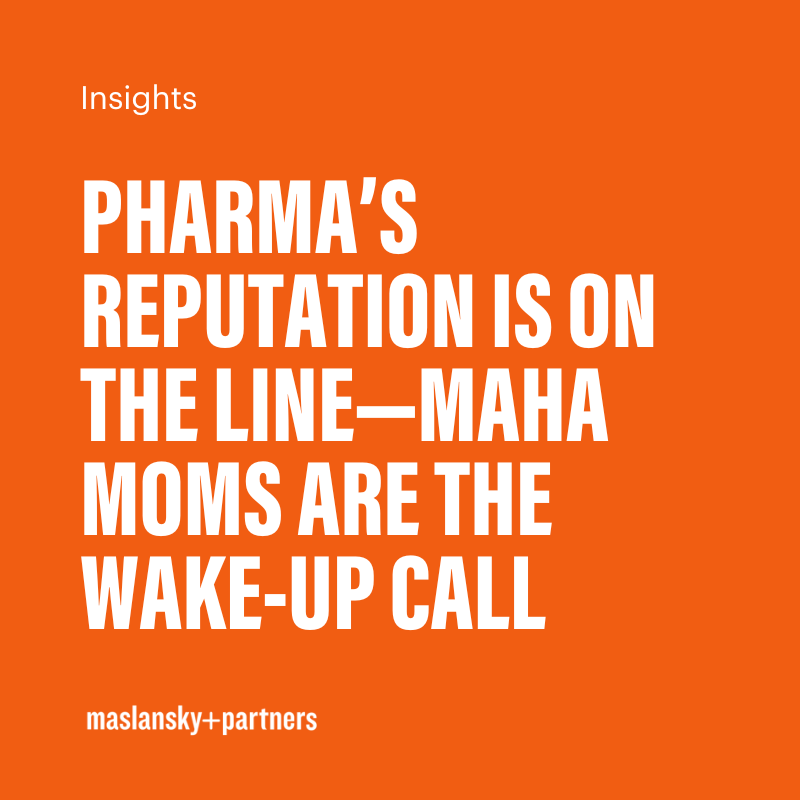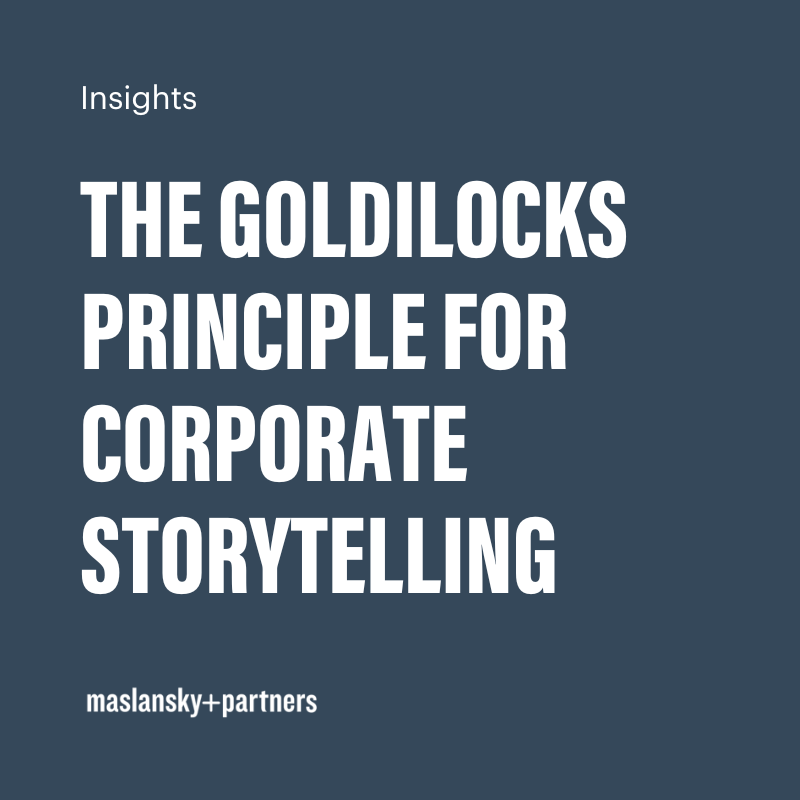How pharma can reshape its narrative—and rebuild trust
The pharmaceutical industry has had its ups and downs over the past few years, with moments of great success and moments of real challenge—including increased scrutiny about the cost of medications and questions about the role of the industry in the COVID pandemic. Based on years of experience, we’re sharing some of the key steps pharma companies can take to shift perceptions and begin to rebuild trust.
How we got here…
We’ve been doing research on pharmaceutical pricing for years, and many of these challenges are longstanding. But there was an inflection point around 2015 when things got extra tough for the industry, and we started looking at the real drivers of that negative reputation.
In 2015, we were gearing up for a presidential election cycle and the out-of-pocket costs Americans were paying for medicine was ranking high among voter concerns. Messages like “Health care is a right” began trending and gaining steam. And as a few bad actors were hauled in front of Congress to explain pricing hikes on medicines, they came to symbolize a core perception: the industry is unfairly profiting off people’s health.
Then came the pandemic, when we all started cheering for pharmaceutical companies to find the cure. During the early months, we were all brought into the lab with pharma companies, wondering who was going to get the vaccine to us fastest. It was a huge moment for all of us—and for the industry in particular—when the first vaccine was approved. People lined up to get it and for the first time in a long time, people were grateful for pharmaceutical companies.
But it didn’t last long. People started to question how well the vaccine worked because many of those who got it still got COVID. At the same time, there were mandates. People felt forced to take the vaccine. And people saw how much the pharma companies were profiting. That initial gratitude and positivity quickly faded. The narrative that these companies put profits before people was amplified.
Prior to the pandemic, one of the most prominent defenses the pharmaceutical industry had about the high cost of medicines was to point to the challenges of R&D: how it takes many years and millions of dollars to develop drugs, and how they fail more often than they succeed. But with the advent of the COVID vaccines, they now had a double-edged sword: suddenly, while it was amazing and necessary to develop the vaccines, we saw that pharmaceutical companies CAN do it faster. They CAN be more successful when they really need to be. The question on skeptics’ minds became, why don’t they do it all the time? A situation that could have been a new golden age for pharma became one that magnified the criticisms of the industry that existed before.
Fast forward to today, and the reputation of the industry is hurting. We recently did a podcast on this topic, and we shared six key strategies for reshaping the industry’s narrative. Here are a few of them—for the full list, check out this episode of HearSay.
- DON’T GET DEFENSIVE & DON’T SHIFT THE BLAME
When pharma faces questions about the cost of medicine, there can be an instinct to get defensive; to try to explain how much they invest in R&D and all the hard effort involved, so people have a deeper appreciation for what they do. Another popular response has been to try to shift the blame to the middlemen: the pharmacy benefit managers who work on behalf of insurance companies to negotiate discounts on medicine, but then don’t pass those savings on to patients. They’re positioned as taking their cut and driving up out-of-pocket costs. While this might feel like a natural response for pharma, we’ve seen repeatedly that neither of these tactics – getting defensive or shifting the blame – will work long term.
- SHIFT THE NARRATIVE INSTEAD: RECAST THE VILLAIN
Rather than shifting the blame to someone else like a middleman, there’s a principle of good storytelling that can help shift the narrative: recast the villain. Instead of personifying the middleman as the villain, personify the disease that you’re going up against. Make the disease the bad guy, so we’re all on the same team against this villain. Then, talk about your ability to fight or defeat that villain.
One company that’s done this well, albeit in a different situation, in a recent advertising campaign is Ro, an online medical service that treats obesity with new injectable weight loss drugs. There’s some stigma around taking drugs for weight loss, so Ro did something clever. They changed the frame, or the way you look at it. They said that taking medicine for weight loss isn’t lazy, it’s healthcare. By taking drugs, you’re medically treating a health problem. They shifted the conversation.
Pharmaceutical companies need to shift the narrative, too. If you’re talking about pricing, you’re probably already losing. The more you focus on something else, like the disease itself or the benefits of the medication, the more successful you’re likely to be.
- TELL THE STORY OF THE INDUSTRY’S IMPACT ON OVERALL HEALTH
Finally, how about creating a narrative about the impact the industry has had on health overall? There are a lot of medications that have changed the trajectory of health in America in positive ways, and that story is not being told – like a new medication or therapy that has gone from twice-a-day dosing to single-day dosing, or something that was once an injection that is now a pill? Sometimes we take for granted the smaller things, but it’s often those small things that make our lives better every day. And when you start to recognize all those different things, you start to appreciate the companies that are behind them. People so often associate the medicine with just a pill. Can the industry credibly and meaningfully expand what it does in people’s minds, to shift away from just being about a product or a pill, to being about offering a service that improves the quality of your life?
After the financial services industry collapse in 2008, a lot of companies tried to do similar things as pharma today. They tried to distance themselves from the problem and shift the blame. They weren’t the ones that took bailout funds, they weren’t the irresponsible actors, it wasn’t their fault, it was these other guys. But the answer wasn’t to help people realize you’re not part of the problem. The answer was to make people appreciate that you are the solution. For example, we tested language with one financial client that really worked. It said:
“There are a lot of things that led us to this moment, and we’re not here to debate them. We’re here to talk about how we’re going to set the financial services industry right going forward, so you know your money is always going to be safe.” That example is powerful because it goes forward. It starts to list the different things the company is doing, so people recognize it’s an important part of their life and part of the solution for the future.
Pharmaceutical companies are easily demonized, but we all have personal stories on how powerful and important they have been in our lives. How can we make these big, impersonal, corporate giants relevant and personal to us again, like when COVID brought the scientists into our living rooms? Every company has a great story to tell, but all the negativity and skepticism prevent it from being heard. It’s hard work to get people to listen, to hear you as you want to be heard, and to break through with your message. But it’s critical. Our job is to make sure the stories you tell really do disrupt and drive behavior change.
To hear our full conversation on this topic, with more strategies for pharma companies to change their narrative, listen to this episode of our HearSay podcast.









